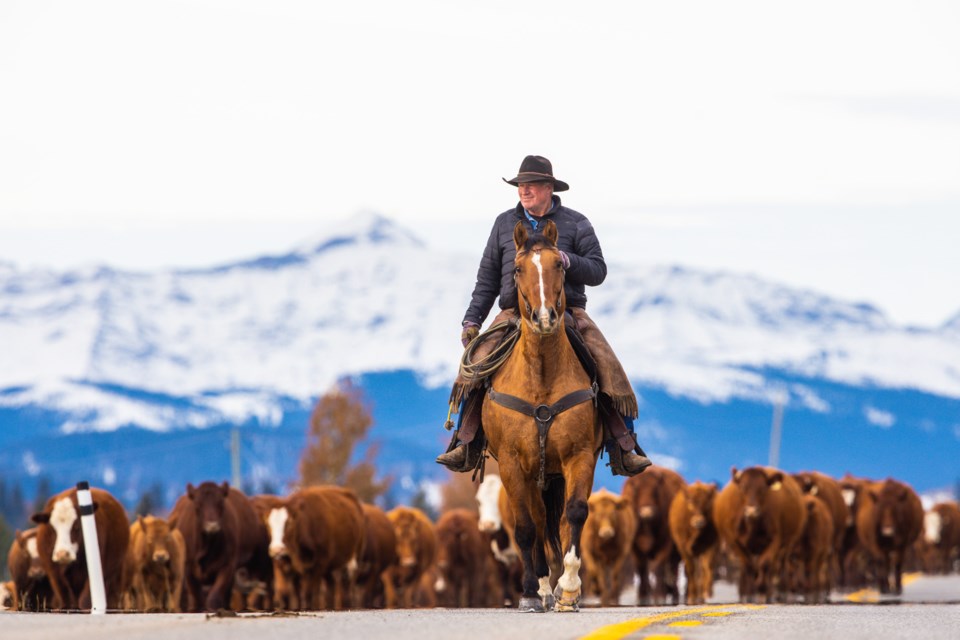Alberta Beef Producers (ABP) board of directors has filed notice with the Canadian Cattle Association (CCA) their intent to withdraw from membership with CCA effective July 1, 2026, citing concerns with the performance of CCA. That means CCA has 10 months to respond to ABP with a favourable answer if they hope to have the continued support from Alberta producers.
In a release from ABP, they note this formal document is new, but the challenges outlined are not, and that ABP has been transparent with CCA about these concerns over time. It adds, “We remain open to direct and respectful dialogue with the CCA regarding the specifics of each point outlined below.”
ABP’s concerns center around funding and fiscal transparency, and their points of concern are:
• ABP requires that provincial funding assessments be based on retained marketings across all provinces to ensure fairness and consistency.
• The assessment rate of $0.53 must be maintained.
• ABP has ongoing concerns regarding fiscal transparency and recommend the establishment of an elected Finance Chair within the CCA to enhance financial oversight.
• ABP also seeks reassurance through regular reporting that there is an active and effective Audit Committee in place.
• ABP strongly urges the unfreezing of board seats and a revision of the representation formula to reflect the financial contributions made by each province.
• Currently, ABP contributes over 50 per cent of CCA’s budget, yet holds only seven of 24 seats under the existing freeze.
• To ensure strategic and unbiased leadership, ABP encourages CCA Executive to engage a reputable third-party executive search firm in hiring the Executive Vice President.
• APB has significant concerns regarding governance and recommend the formation of a dedicated Governance Committee.
• APB suggests engaging an independent third-party to conduct a comprehensive review of CCA’s governance structure, with input from elected representatives.
• It is important to reaffirm that the CCA is directed by nine member provinces, not by 60,000 individual producers.
Most cattle producers know mainly that they pay a check-off to ABP on each animal sold, so likely would have no opinion of the issues with CCA raised by ABP. However, Town and Country talked with a couple of former ABP local area delegates to get their thoughts.
Rick McKnight, thought basically retired, is still involved with Touchwood Ranch in the Cross Lake area. A delegate of several years ago, he said he could really make no comment, as he didn’t have enough information on the issue at this time.
Rod Carlyon, who runs his cattle operation west of Dapp, is a more recent delegate, and offered the following thoughts:
He said when he was on the board, “We had a severe minority of the directors on CCA yet we were contributing a majority of the funding,” which is seven of 24 seats.
Currently, none of those on the executive are from Alberta, which Carlyon says he is okay with, since the executive should be the most qualified for the positions. “We always want the best people.”
Carlyon added ABP pays 53 cents on all check-offs whether they were withdrawn or not. Alberta has a refundable check-off, which means producers have the option of having their check-off dollars returned. That reduces the amount of funds that ABP has to work with for programs to help Alberta cattle producers.
“In the last few years, we’ve got a better deal (with CCA) in a sense that it is only on those check-offs retained, but that agreement ends in the next 10 months, with no assurance that agreement will continue,” he pointed out.
“With the large amount of refunds, plus the extra costs to CCA, ABP has had to significantly reduce their budget,” Carlyon said, and some producers have been concerned how some services have changed or been done away with, mainly due to budget constraints over the past few years since going to the refundable process.
“Even though we (Alberta producers through ABP) contribute a majority of the CCA budget, we only have only seven of the 24 seats (on CCA), so it makes an interesting dilemma of how CCA tries to still get some representation from across Canada, but still represent the issues of different areas of Canada, but still recognize those that are funding and making the largest contribution to the organization are also recognized," said Carlyon.
However disproportionally, Alberta is not well represented on CCA, Carlyon said.
“When you look online (at CCA’s website) I struggle to make sense of their budget or their fiscal reporting is very vague. You have really no idea. They’ve only had a couple of financial reports over the last 10 years. They haven’t even reported. You don’t know what they did. That’s the concern. They have committees, and you don’t know what they actually did. That’s also part of the concern I have,” he said.
But, Carlyon noted, CCA still has 10 months to respond with something ABP can agree to. Alberta has become known for its cattle not just across Canada but the entire world since the province is home to 4.7 million head of cattle and 40 per cent of the country's beef herd, according to Statistics Canada.



